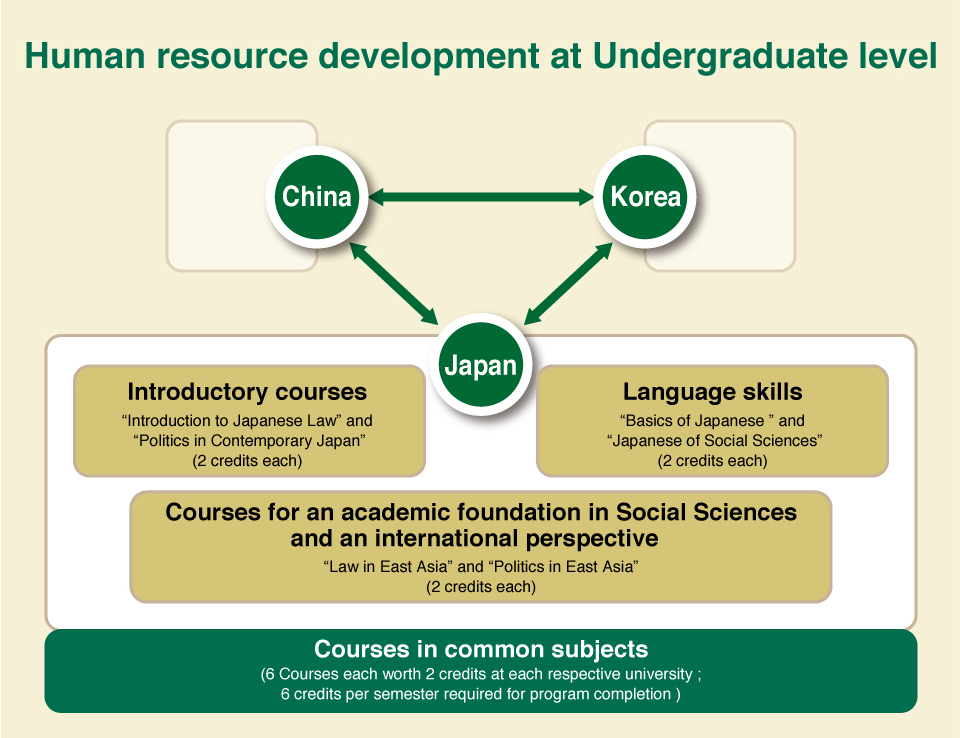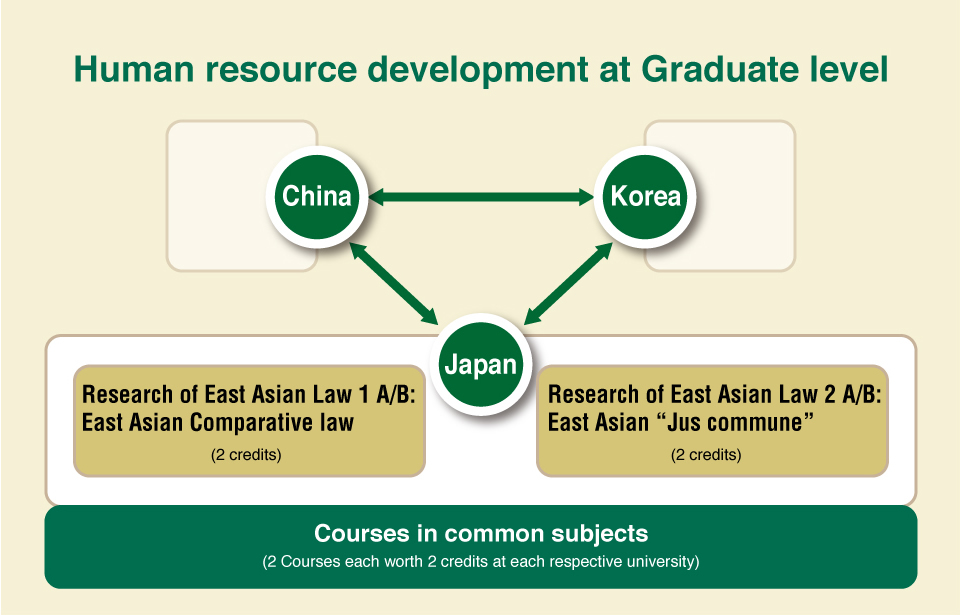Education


Educational program outline (Nagoya University)
| 1st Year, Spring Semester | Applications accepted for program participation. | ||
| 1st Year, Fall Semester-2nd Year, Spring Semester | Preparatory education is conducted as preparation for studying overseas with a focus on the political and legal systems in China or Korea and foreign language skills. | ||
| 1st Year, Spring Vacation | Short term study tour(approximately 1 week) is conducted to China or Korea as preparation for studying abroad. | ||
| 2nd Year, Spring Semester | Talented and motivated students selected to be dispatched to China and Korea. | ||
| 2nd Year, Fall Semester-3rd Year, Spring Semester | Education at the host university in China or Korea; completion of required courses and a range of elective courses offered at the host university in English, and either Chinese or Korean. Credits obtained by students during this period are added, as far as possible, to the total number of credits required for graduation from Nagoya University; however, the maximum number of credits the student can obtain is fixed for each semester. |
||
| Program targets | The program participants are expected to have acquired the levels of foreign language skills as described below at the time of graduation. | ||
| English | PBT TOEFL 570, TOEIC 800 | ||
| Chinese (when applicable) | HST written examination Grade 4 | ||
| Korean (when applicable) | General Korean Proficiency Examination Grade 4 | ||
Required Courses
Program participants are required to complete courses in the following subjects during their year abroad to complete the Program.
| Introductory courses | Introductory subjects in Law and Political Science (one subject each) |
|---|
| Foreign language skills | Subjects related to the host country language (two subjects) |
|---|
| International community | Subjects related to law and politics in East Asia (one subject each) |
|---|
Characteristics of Program education
(1) Quality Assurance
The Quality Assurance Council, comprised of members representing the participating universities, confirm the content, course requirements and other matters of required and elective courses provided by the participating universities, so as to ensure the quality of education in the Program.
(2) Accreditation for graduation
Academic credits obtained by students at their host universities during the year abroad are recognized as far as possible as credits required for graduation so that the students will not need to delay their graduation.



